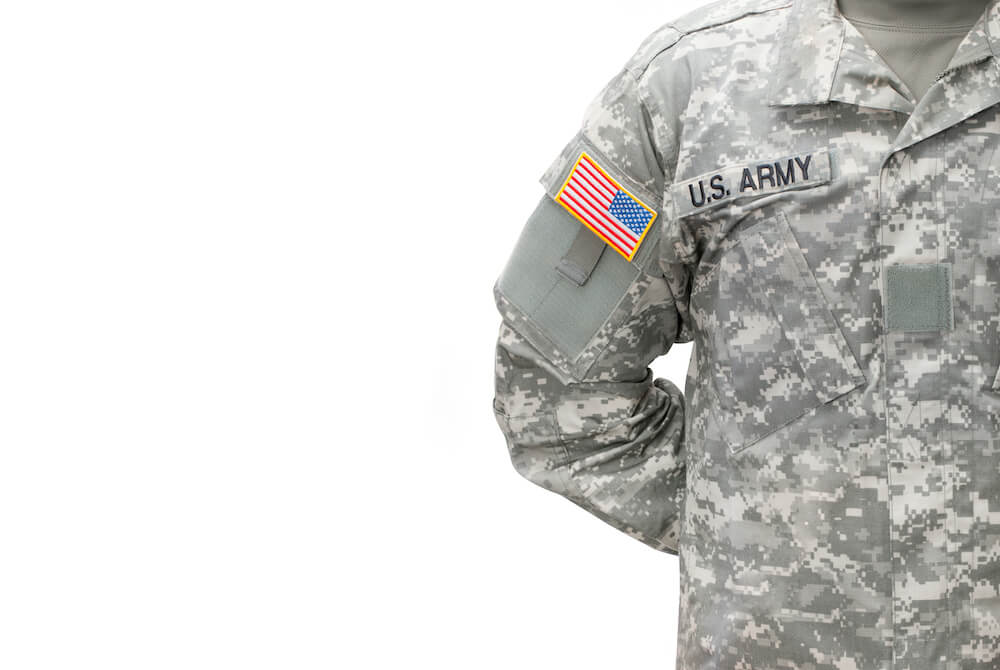Substance Abuse in the Army
Soldiers and Substance Abuse
Substance use and abuse is common among service member and Veterans in every branch of the U.S. Military. Addiction is chronic medical disease where people use substances or continue compulsive behaviors despite experiencing harmful consequences.1
Among active service members and Veterans, alcohol is the most widely used and abused substance.2 Marijuana is the second-most commonly abused substance for Veterans.2
Alcohol Abuse
Binge drinking is more common among service members.2 In a 2014 study comparing service members to civilians, 1 in 3 service members report binge drinking, compared to 1 in 4 members of the civilian population.2
Among Veterans entering Veterans Affairs (VA) inpatient rehab programs, 50% cite alcohol as the reason for admission to substance abuse treatment—that’s twice the rate of the civilian population.2 For people who serve in the military, there is a general acceptance of drinking. The stress and trauma of military service can lead to the use of alcohol to cope. Even after service, Veterans may continue abusing alcohol and other substances.
Signs of an alcohol use disorder include the continuing use of alcohol despite the serious consequences it may have for the Veteran’s personal life and physical health.3 A Veteran may also experience physical symptoms of withdrawal when they stop using alcohol, including:3
- Anxiety.
- Insomnia.
- Nausea.
- Physical agitation.
- Racing pulse.
- Seizures.
- Sweating.
- Tremors.
Drug Abuse
Drug abuse among active duty service members is not as common as alcohol misuse.2 This is most likely due to a strict zero-tolerance policy in all branches of the military, including the Army.2 All branches of the U.S. military conduct random drug testing, and being discharged from the military is inevitable if a service member is found to be using illicit substances.2
It can sometimes be difficult to determine the line between recreational substance use and substance abuse. However, some of the signs of substance abuse include:4
- A sudden drop in work or school performance.
- Abrupt changes in social groups.
- Acting suspicious and secretive.
- Changes in personality without explanation.
- Engaging in risky behaviors without considering the consequences.
- Having legal charges related to drug use.
- Not being able to fulfill responsibilities at home or work.
- Paranoid behaviors with no reason for them.
- Sudden mood changes.
Addiction with Co-Occurring Mental Health Issues in the Army

Mental health issues exist among service members, just as they do among the civilian population. Post-traumatic stress disorder (PTSD) is prevalent among Veterans and varies from one group of Veterans to another.5
Around 30% of Vietnam Veterans have likely met the criteria for a diagnosis of PTSD at some point in their lives.5 Among Gulf War Veterans, around 12% are estimated to have symptoms of PTSD.5 For more recent military conflicts, including Operation Iraqi Freedom and Operation Enduring Freedom, the estimated prevalence of PTSD symptoms in Veterans ranges from 11% to 20%.5
Depression rates among Veterans is also significant. The VA estimates that 1 in 3 Veterans have symptoms of depression. As many as 1 in 8 have major depression.6 However, Vietnam Veterans are twice as likely to have depression as are Korean War or World War II Veterans.6
Co-occurring disorders are illnesses that occur at the same time as one another. For example, having both a SUD and a mental health issue, such as depression, means that a person has co-occurring illnesses. Among Veterans, PTSD and SUDs are common co-occurring disorders.7 It is estimated that 2 out of 10 Veterans with PTSD also have a SUD. In addition, 1 in 3 Veterans seeking help for an SUD also have PTSD.7
Asking for Help
It is not easy for Veterans to reach out and ask for help with mental health issues or substance abuse. Some of the reasons Veterans do not ask for help, especially for PTSD, include:8
- Difficulty accessing services, including distance from providers and delays in care.
- Lack of awareness, such as not realizing certain feelings are stemming from PTSD.
- Lack of social support and encouragement to seek help.
- Not believing that treatment will work.
The VA operates numerous helplines and sites to search for information. The U.S. Army offers a series of videos that discuss numerous mental health topics. The Veteran’s crisis line is open 24/7 online or by phone, 1-800-273-8255, then press 1.
VA Substance Abuse Assessment
If you are concerned about substance abuse, the VA also provides a screening tool that can help determine if you could benefit from treatment for alcohol abuse or drug abuse at a VA rehab center or other treatment provider.
Health Insurance and VA Benefits
If you or your loved one is a former service member, numerous treatment options are available, including VA inpatient rehab, as well as private providers. Veterans can also seek community-based services through the MISSION Act Community Care program. These benefits can be used for mental health treatment, substance abuse treatment, or treatment for co-occurring disorders. The VA Community Care Network can help you find treatment near home. Learn more about VA benefits for rehab.
Rehab for Veterans
The VA offers numerous treatment options at various centers throughout the United States. VA drug rehab and VA rehab centers treat mental health issues and co-occurring disorders.
If the VA doesn’t offer a program in your area, or the VA rehabilitation program in your area has no openings for treatment, the VA may also approve a private provider for treatment through the MISSION Act. The VA must approve these types of requests.
Information regarding TRICARE and its crisis services may be accessed for more information.
In addition, while seeking help, you can reach out to the Veterans’ crisis line.
What is the Veteran Program?
AAC offers a Veteran program that is geared towards Veterans with a substance abuse and mental illness. Many of the staff members are Veterans themselves, which gives them a perspective to help Veterans in a more focused and passionate way.
Remember that PSTD, depression, drug use and misuse, and co-occurring illnesses are frequent issues for Veterans. You can reach out through the numerous services offered through the VA, either directly, or by the VA approving outside providers who can offer addiction treatment or treatment for mental illness. AAC offers services geared to Veterans, which can help you or your loved one recover for substance abuse or co-occurring illnesses.
